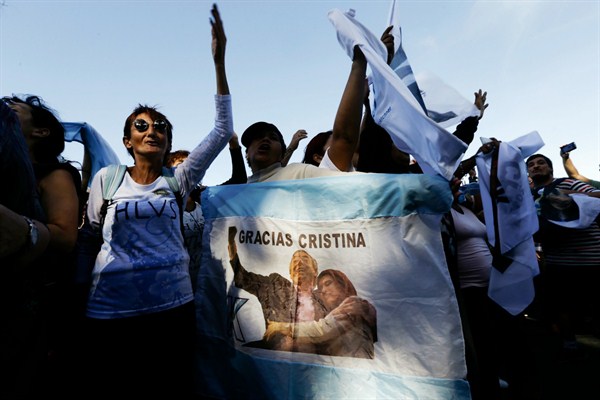Argentines watched in shock last month as former Vice President Amado Boudou was arrested and put in pre-trial detention on corruption charges. It was the latest in a string of arrests of former officials from ex-President Cristina Fernandez de Kirchner’s administration, causing many to question whether the former president, who faces indictments in several criminal cases, could be next.
But although a section of Argentina’s population was elated at the media spectacle of the disheveled, barefoot vice president in handcuffs, the arrest caused journalists and politicians from across the political spectrum to question whether the judiciary is starting to abuse its power.
President Mauricio Macri has repeatedly insisted that he stands for an impartial, nonpartisan judicial system. Yet since he took office in late 2015, his administration’s approach to anti-corruption—a key part of his agenda—seems to have further politicized the judiciary, limiting the independence of judges with jurisdiction over these cases and of the attorney general’s office. These tactics, critics claim, have led to the selective prosecution of cases against opposition leaders on more aggressive terms than corruption prosecutions of the government’s allies.

